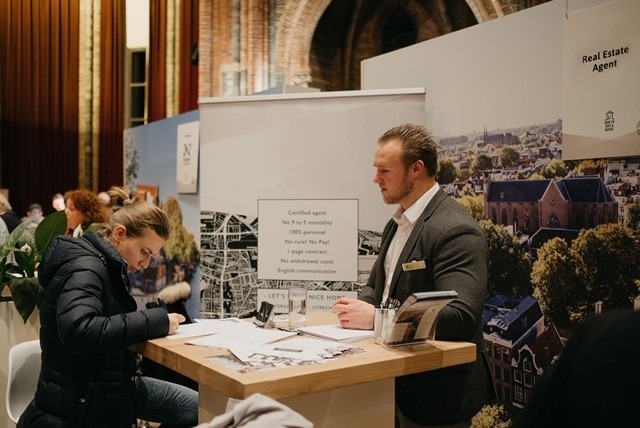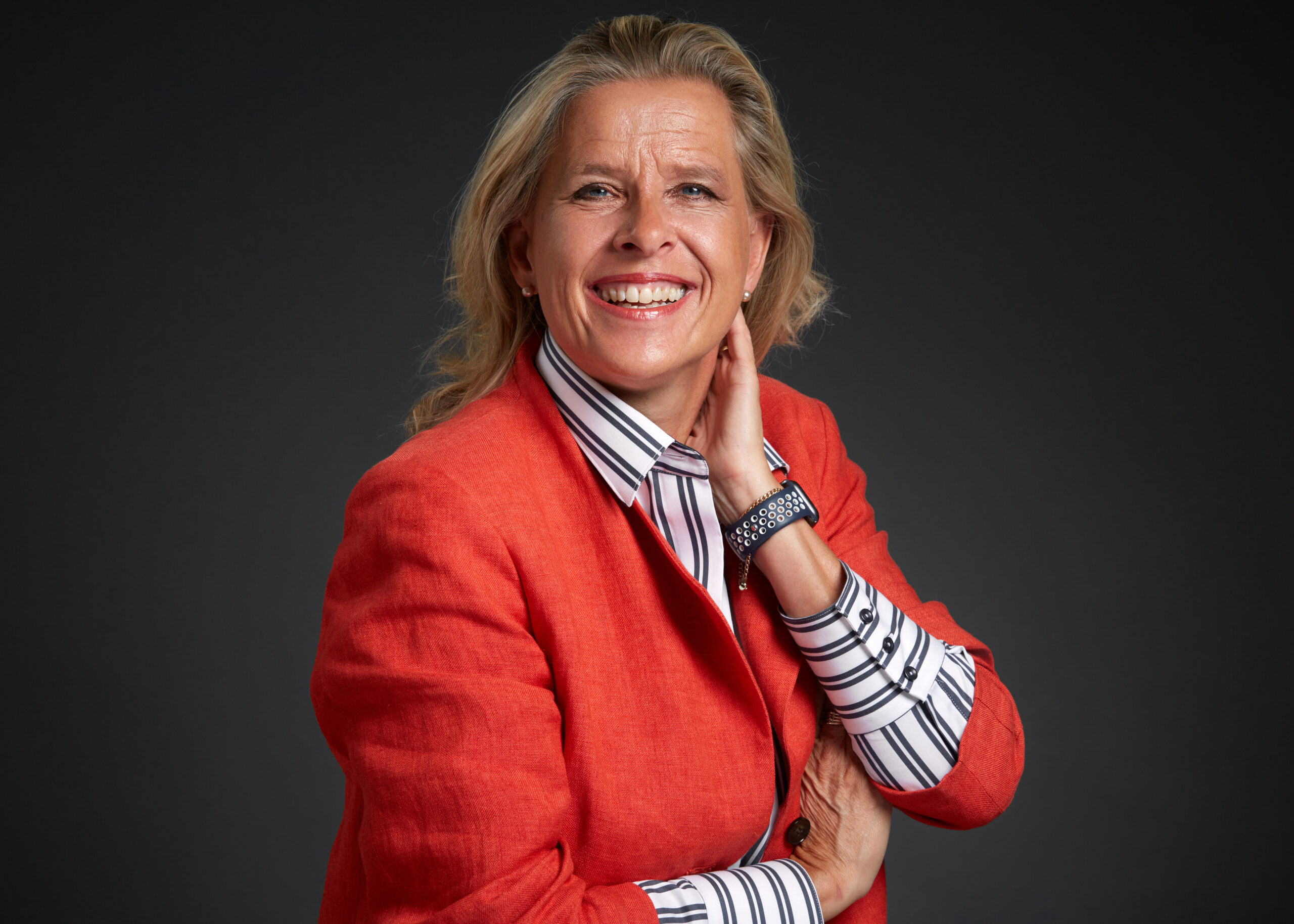Interview | David Bellingham Revolutionizing Financial Services for Expats

We are thrilled to present an insightful conversation with David Bellingham, the esteemed CEO of Black Swan Capital, an award-winning independent investment advisory firm. With a steadfast commitment to catering to the specific and unique needs of internationals, Black Swan Capital has garnered recognition for its exceptional investment advice and personalized services. Revolutionizing Financial Services for Expats and International Professionals is one of the topics we discuss.
In this exclusive interview, we delve into David’s wealth of experience and expertise in the financial industry. Join us as he shares valuable insights, market perspectives, and his vision for empowering internationals with tailored investment strategies.
Introduce yourself! Who are you, what industry do you work in and how did you get involved with HTBAH?
Hi there! My name is David Bellingham, and I head up Black Swan Capital for Europe. Having met HTBAH through the industry, I enjoy meeting like-minded business people like Monique and her team who value high-quality service and looking after their clients!
Who are your clients?
Usually, we deal with internationals – people either living outside of their home country. We provide objective financial advice on a fee-for-service basis.
What kinds of service do you deliver yourselves and what expertise do you forward to your partners?
Black Swan’s employees are all internationals themselves! Overseen by Dutch central bank, Black Swan can guarantee the highest standard in Europe and is very proud to be the first firm in the whole of Europe that has a fully independent investment firm license.
Can you take me on your customers’ journey from A-Z?
When we meet someone, we first get to know them and see if it’s fit; will partnering with Black Swan be mutually beneficial? If it’s a match, we sign a client agreement and spend a few weeks making a full advisement report for them. Then, we help them to implement the recommendations or outsource should they need it, and have an ongoing management service for our clients to ensure they are always on track to achieve their goals.
What are your top 3 tips in working with expats to ensure they have a smooth transition from their last country of residence to The Netherlands?
- Know what you want to achieve, we can help them with this if they don’t know yet
- Built-in flexibility
- Get reputable advice

Give us an example of a time you successfully helped a client. What happened? What did you learn from it?
Every client is an example, but for privacy, I cannot divulge certain information. However, the main thing is that we know how to listen to clients and every service is bespoke on a case-by-case basis.
How can your expert advice assist a client moving from overseas to the Netherlands?
Helping them to understand the environment here, as well as understanding the options they have that are in their home countries.
What are some do’s and don’ts for expat clients that you would/wouldn’t recommend in relation to your industry?
Flexibility – the Dutch regulator has a commission ban. You can passport your license around the EU. Be careful – ‘free’ is not often the case, fine print and exit charges are often a problem for people after they’re realized it. Make sure the person you’re talking with is qualified.
What are the benefits of working with you as opposed to another vendor in your industry?
We always ensure our clients are comfortable, we’re qualified, and experienced, and have a judicial obligation to act in our client’s best interest.
How can a potential client get in touch with you?
The best way to contact us is to visit our website or send us an email at info@blackswancapital.eu.
Interview | Tim Wormsbecher, Real Estate Agent
We have worked with many colleagues in the real estate industry over the years, and today, we would like to introduce you to Tim Wormsbecher, the proud owner and real estate agent / valuator at TWM Makelaardij .
After working in real estate for nine years, Tim decided to start his own adventure and in 2017, TWM was founded. In the last few years, the company has expanded, with the team now consisting of three real estate agents and two colleagues in the back-office. Notably, Tim's team are most active in the real estate market in Amsterdam, Purmerend and Zaandam.
We reached out to Tim to get an insight into valuation, the housing market in Amsterdam and the best way to approach finding the perfect home in the Netherlands!

What is the customer journey like when buying a house in the Netherlands?
The market in the Netherlands is quite transparent, the majority of houses is to be found on a central website and they are strict in the regulations the advertisements from realtors have to meet. So, it is fairly easy to orientate from home.
Where do I start in buying a house in the Netherlands?
In most cases, people in the Netherlands live relatively close to where the work, so this will most likely be your preferred area. The Amsterdam region is quite small compared to other international cities. With public transport or by car, 30 minutes can get you in completely different areas with different aspects to keep in mind as well as different populations and regulations.
What is the benefit of hiring a good real estate agent when buying a house in Amsterdam?
We know the market like no other, we estimate the pricing of houses, know what areas or what building eras have, which specific issues or things to watch out for. A huge part of our job is to estimate the value of the house so that you don't overpay; it's never the same percentage that you should offer over an asking price. We even regularly buy houses under the asking price. Thorough investigation is crucial.
Why should I not look for a property by myself?
Although the advertisements are transparent, there are so many rules and regulations when buying a house in the Netherlands. For example, if there is a house with a roof terrace but there was no permission granted, what to do if the homeowners association is not saving enough money for future maintenance, what is a ground lease (leasehold) and how does it affect the value of a house, what is the state of the foundation of the building, what are the costs of a renovation etc. We are aware of all aspects and can answer 99% of your questions right away.
What do I do if I want to sell my house in the Netherlands? What are my options? Is it good to hire a real estate agent in this scenario?
The best is to hire an agent to sell your house, the agent will determine the market value and based on that give advice for the asking price for the advertisement. There will be a professional photographer, floorplans and measurement certificate will be made and the advertisement text will be written by the agent. The house will be put online and the agent guides all the viewers through your house. Your agent will either choose to have a bidding deadline or when an offer comes in the agent will negotiate (in consultation with you) to get the highest price. Your agent will make sure the agreements are legally registered in a purchase agreement and you will also be guided through the rest of the process like signing, inspection and delivery.The entire process is taken care of with nothing to worry about.
If I sell my house, how am I guaranteed the highest bid?
Before starting the process you'll receive advice with the estimated value. Realtors are experts in determining the best price to put the house on the market. In addition, they will make sure the viewers are well informed and get excited to make an offer on your house. With either a bidding procedure or a perfect negotiation we will get you the best price possible.
Does a real estate agent have a pre-market register?
We have an exchange system where realtors put in the newest listings, in general agents are at least one or two days ahead of the main websites. This gives a head start for agent to schedule appointments for their clients and when buying a house it gives you the advantage that you and your agent can be there on the first day of viewings and maybe even buy the house before someone else will even visit the house.
What is the bidding process like?
It differs with every property. In this market most properties are sold with a deadline. Meaning that you have until a certain time to make a one-time offer. If the selling agent has no offers yet, you can make the first offer and see where it lands. If the selling agent receives multiple offers, it can be decided that, in consultation with the seller, there is going to be a deadline still and you have the option to participate in this.
How can my real estate agent help me to negotiate the best possible as a buyer or a seller? Find out what you can afford from mort advisor or bank - explanation.
First we would like to connect you with a mortgage advisor we work with a lot. This way we are very certain that if we make an offer, the buyer can indeed finance it. Before the negotiation, whether it is a deadline or a first offer, we are going to look at the property as an appraiser would. This way we have multiple of the same or similar properties which we can compare to the property the buyer wants to buy. When we are certain of a price, we can advise our buyer not to go over this mentioned price as going over it means the buyer buys it above market value and this is usually not what someone wants. The buyer has always the choice to go over the estimated market value but the buyer needs to know and must be willing to invest their own savings into the purchase of the property.
I need a mortgage so I need a valuation - can you explain in simple terms what a valuation is and why do I need one?
The valuation, also the appraisal report, is a report which is made by a third and independent party who appraises the property. This report goes to the bank / financial advisor so the mortgage process can start. The amount mentioned in the report is also the maximum which will be financed for the purchase of the property. It is also possible to finance a (part of a) renovation.
Can every company value my house?
No, only an appraiser can do so. For a mortgage, it has to be a validated report and only appraisers attached to the union of appraisers may have their reports validated.
Is it mandatory to valuate my house? Why / why not?
If the buyer is in need of a mortgage, yes. If not, it won't be necessary however it is always a good idea to hire an expert in estimating the property value before you make an offer.
What are the consequences if the valuation does not meet the purchase price?
There are two options. In the purchase agreement, it will say the buyer has a certain time to get the mortgage approved. If, in case of a too low amount mentioned in the appraisal report, the buyer hands over a rejection letter from the bank stating they cannot have a mortgage based on the fact the appraisal amount was too low, the buyer can cancel the purchase agreement. It is a choice however, you can always choose to continue, get the lower amount according to the report and add the rest from your own savings.
Do you have any tips on buying or selling in general?
Hire an expert to guide you through the process, this will save a lot of insecurities, answer a lot of questions and most important: a good agent will earn money, not cost money. This works for either a buying agent who protects you from not overpaying and a selling agent who does their best to get the highest price possible for you.
Interview | Anne-Marie Snel, Notary
Who is Anne-Marie Snel?
Anne-Marie Snel is a top-class Notary. Having recently been appointed by the Dutch courts, Anne-Marie is now able to sign her own deeds - a huge milestone in a Notary's career. Her core business is everything to do with property, whether that's ownership, transfer, or closure of houses. While Attorneys are employed to solve problems, in the Netherlands a Notary prevents problems in relation to real estate as an impartial party. Although Anne-Marie finished her studies in 1994 in a different area, she ended up working in a Notary's office where her journey first began. A How To Buy A House (HTBAH) veteran, Anne-Marie with Monique at the first HTBAH event in the Hague during which time Anne-Marie was employed with a bigger firm.
They kept in contact over the years, and Monique has had the pleasure of working with Anne-Marie on several projects since then, often collaborating with and helping expats to find their dream homes.
What exactly is a Notary?
A Notary is basically a legal coordinator when you choose to purchase a home in the Netherlands. A Notary specializes in 3 areas - real estate, family law and corporate law. A Notary is more common in European countries, it's a Latin system. The moment the Notary signs the deed, you don't have to worry, they will arrange everything with the transaction. In English-speaking countries, the solicitor handles all arrangements, but not transactions. Also, a Notary does not go to court.
From a Notary's perspective, what is the customer journey like when buying a house in the Netherlands as an expat?
Once you have partnered with a good real estate agent and have found a property you like, you then need to acquire a Notary to seal the deal from a legal perspective. Because your Notary is an impartial party to the sale, you can have them look at the contract without any cause for concern regarding their intentions. In Amsterdam, the Notary will draw up the contract. Outside of Amsterdam, the seller will sort this out. In the Netherlands, you have to declare that the money you're using to pay for the house has been earned authentically, whether that income is from your salary, business, or other assets. The Dutch government needs to make sure you're not laundering money because the easiest way to do this is through property.
Are there any particular details of the process that I should be aware of?
If you don't speak Dutch, an official translator will need to be present to sign the deeds, for which you must factor into the cost of the entire purchase. In addition, you have to consider which laws apply to your possessions as a resident of the Netherlands, eg which tax laws apply to you, what happens with your will, etc. You need to decide on who you would like to inherit your possessions after your death; this, of course, includes your home. Depending on what country you're from, international laws are usually taken into account.
Give us an example of a time you successfully helped a client? What happened? What did you learn from it?
Every case is different, but a hallmark of a happy client is when the transaction is handled safely and successfully without any stress.
What are some do's and don't's for expat clients that you would / wouldn't recommend in relation to your industry?
Do ask questions; don't try to do it all by yourself. Don't be afraid that they will think you're asking stupid questions - it's our job to help you through the process and it can be very overwhelming.
If the Notary doesn't know it, there will be someone they know that will know the answer. The majority of the time, when there's a fault made it was because someone was afraid to ask a question. Remember, once the deed has been signed and the cooling-off period of three days has surpassed - there's no going back!
What are the benefits of working with you as opposed to another vendor in your industry?
The advantage with me is that I've worked my way up from a small office up to a big international office with lawyers and notaries. My current firm is now my own firm and smaller once again. The advantage of a smaller firm is that there's less distance between the client and the notary. So I have a lot of experience with different types of clients. I speak English, and have traveled a lot. I know and respect other cultures, in addition to being aware of a lot of the rules in a different laws / countries. I've learned from a lot of other professions over the years in this industry. Everywhere you work, you learn.
If you were to describe HTBAH in 3 words, what would they be?
The benefit of attending a HTBAH event is that all the connections under one roof for expats - they know everyone, and are the best in the business! I don't know anyone who is that broad in terms of connections with so many people and services, especially considering everyone speaks English.
How can a potential client get in touch with you?
Google! Or else, feel free to get in touch with me on LinkedIn: Anne-Marie Snel, Notary at Prinsenhof Notarissen.
What is your top tip on buying or selling in general?
Make sure you understand everything before you sign!
Quote from Monique:
“The Notary is a fundamental party during the whole process of buying a house in the Netherlands. Anne-Marie is not only a very skilled Notary, but a wonderful person and has a superb reputation for nurturing excellent relationships with her clients and HTBAH.
If you require a Notary in Brabant or within the surrounding area feel free to reach out to Anne-Marie! ”
- Monique from How To Buy A House



